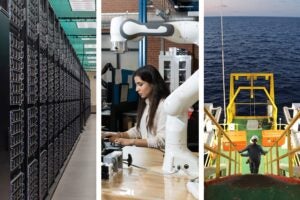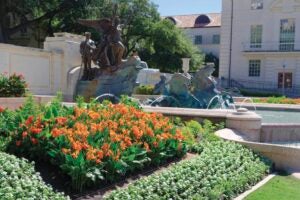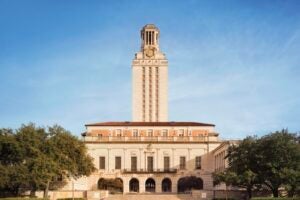Students in the Biology of Biofuels stream one of 25 “research streams” in the Freshman Research Initiative (FRI) investigate the physiology, genetics, breeding and ecology of Switchgrass (Panicum virgatum), a promising biofuel species, and compare it with other potential biofuel sources.
Almost seven billion humans live on Earth, supported by finite planetary resources that are being affected by global climate change. Biofuels are an alternative energy source that could be both sustainable and help minimize climate change. But the benefits of growing plants for fuel will depend on both natural limits to plant productivity and competition for space between biofuel crops, food crops and natural ecosystems.
“We’re just trying to understand this plant that no one has actually studied,” says Maria Villalpando, a biology sophomore, about the work she did as a FRI participant.
“One of my personal motivations is to get students excited about doing research,” says Brandon Campitelli, research educator in the College of Natural Sciences for the Biology of Biofuels research stream. (Support for this research stream was provided by a National Science Foundation Plant Genome grant.) Campitelli manages the day-to-day work of the students.
Each year around 800 first-year students work on research projects in faculty labs while earning traditional class credit through FRI. Students in the research streams cohorts with 30 students each work under the guidance of faculty, graduate students and peer mentors. Projects include robotics, plant ecology and climate change, infectious disease, white dwarf stars, cancer, drug discovery and more.
“Witnessing as freshmen go from learning basic scientific skills to designing and executing independent research projects with real publication potential is enormously satisfying,” Campitelli says. “There is certainly something special about learning how to do science, in addition to learning the science itself.”

This story is part of our “Finding Solutions” series, which explores how UT Austin faculty, staff and students are putting their big ideas to work.



